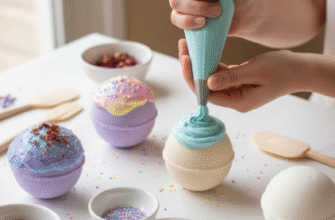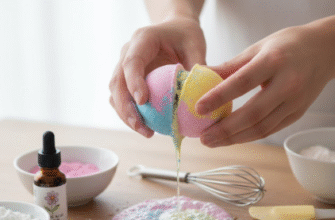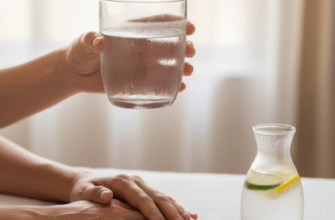Tired of the chemical cocktail that often comes with conventional hair dyes? Maybe your scalp protests, or perhaps you’re just drawn to a more natural approach to beauty. Whatever your reason, exploring the world of natural hair color alternatives can be a rewarding journey. It’s about embracing the subtle shifts and rich tones that nature itself offers, moving away from drastic transformations towards enhancing what you already have. Creating your own natural hair dye isn’t always a quick fix, but it connects you to age-old practices and lets you control exactly what goes onto your hair and scalp.
The allure of skipping the ammonia, peroxide, PPDs, and other potent chemicals found in many box dyes is strong. While conventional dyes deliver predictable and often dramatic results, they can sometimes leave hair feeling stressed, dry, or brittle. For those with sensitive skin or allergies, the experience can be downright uncomfortable. Natural alternatives, derived from plants, herbs, and even kitchen staples, tend to be gentler. Many ingredients, like henna or certain oils often mixed in, can even offer conditioning benefits, leaving hair feeling softer and looking shinier after treatment. It’s a different philosophy – working with your hair’s nature rather than against it.
Dipping Into Nature’s Palette
The earth provides a surprising array of ingredients capable of tinting or darkening hair strands. Results heavily depend on your starting hair color, its porosity, and the specific preparation method, but here are some popular options to explore:
For Darker Tones and Covering Greys
Coffee and Black Tea: A strong brew of coffee or black tea can impart subtle brown tones or deepen existing dark hair. It’s also one of the simplest methods. Simply brew a very potent batch (using several tablespoons of grounds or multiple tea bags), let it cool completely, and apply it to clean, damp hair. You can use a spray bottle or simply pour it over, making sure to saturate thoroughly. Leave it on for at least an hour (longer often yields slightly deeper results) before rinsing with cool water. Multiple applications are usually needed to see noticeable effects, especially on lighter hair or greys.
Walnut Hulls: The outer green husks of walnuts pack a powerful staining punch, delivering rich, deep brown to near-black shades. This is a more potent natural dye. You typically need to crush the fresh green hulls (wear gloves – they stain skin intensely!) or use dried, powdered walnut hulls. Simmer them in water for at least an hour to create a dark liquid stain. After cooling and straining, carefully apply the liquid to your hair, ensuring even saturation. Leave it on for an hour or more before rinsing. Be extremely careful during application to avoid staining your skin, clothes, and surfaces.
Sage and Rosemary: These herbs are often used together in a strong infusion to gradually darken grey hairs over time. It’s not an instant dye but more of a progressive rinse. Boil fresh or dried sage and rosemary leaves in water for about 30 minutes, then let it steep for several hours until very dark. Strain the liquid. After shampooing and conditioning, use the cooled infusion as a final rinse, pouring it over your hair repeatedly. Let your hair air dry if possible. Consistent use (several times a week) is key to seeing gradual darkening effects.
For Reddish and Auburn Hues
Henna (Lawsonia inermis): Perhaps the most famous natural hair dye, henna powder comes from the dried leaves of the henna plant. It contains lawsone, a molecule that binds to the keratin in hair, imparting permanent reddish-orange tones. The final color depends heavily on your original hair color – on blonde hair, it can be bright orange; on brown hair, it yields rich auburn; on black hair, it might only give a reddish sheen in sunlight. Henna powder needs to be mixed with a slightly acidic liquid (like lemon juice or apple cider vinegar) and left to sit for several hours (dye release) before application. It’s applied as a thick paste to clean hair and needs to sit for several hours, often wrapped in plastic wrap, to develop. Rinsing thoroughly is essential. Important: Henna is permanent on the parts of the hair it binds to; it doesn’t just wash out, it has to grow out.
Beetroot and Carrot Juice: For temporary reddish or orange tints, pure beetroot juice (for cooler red/pinkish tones) or carrot juice (for warmer orange tones) can be used. Apply the juice generously to damp hair, wrap it up, and let it sit for at least an hour before rinsing. The color is very subtle and washes out quickly, often within one or two shampoos. It’s more of a fun, temporary stain than a lasting dye.
Combining for Browns and Blacks
Henna and Indigo: To achieve brown or black shades naturally, henna is often used in combination with indigo (Indigofera tinctoria). Indigo powder, derived from the indigo plant, deposits blue tones. When used after a henna application (a two-step process) or sometimes mixed directly with henna (a one-step process, often yielding warmer browns), it counteracts the red of henna to create various shades of brown to black. The exact ratio and application method determine the final result. This combination requires careful research and strand testing to achieve the desired shade.
Subtle Lightening (for Blondes/Light Browns)
Chamomile Tea and Lemon Juice: These won’t drastically lighten hair but can enhance blonde tones or add subtle highlights, especially with repeated use and sun exposure. Brew a strong chamomile tea, let it cool, and mix with some fresh lemon juice. Apply to hair (a spray bottle works well) and ideally, sit in the sun for about 30-60 minutes. The heat helps activate the subtle lightening properties. Rinse out afterwards. This method is very gentle and results are cumulative and subtle. Avoid getting concentrated lemon juice on the scalp if sensitive.
Preparation, Application, and Patience: The Keys to Success
Working with natural dyes requires a different mindset than using conventional box dyes. Precision, patience, and preparation are paramount.
Getting Ready
- Gather Supplies: You’ll need bowls (non-metallic for henna/indigo), applicators (brushes, squeeze bottles), gloves (essential!), old towels, barrier cream (like petroleum jelly for your hairline), plastic wrap or a shower cap, and of course, your chosen ingredients.
- Protect Everything: Natural dyes, especially walnut, henna, and indigo, can stain fabrics, surfaces, and skin. Wear old clothes, cover your work area, and apply a barrier cream generously around your hairline, ears, and neck.
- Prepare the Mixture: Follow specific instructions for your chosen ingredient. Some need steeping, others brewing, and some (like henna) require hours for dye release. Consistency matters – aim for a smooth paste or easily applicable liquid.
Always Patch Test First! This is non-negotiable, even with natural ingredients. Apply a small amount of the prepared dye mixture to the skin behind your ear or on your inner elbow. Leave it for the recommended processing time, then rinse. Wait 48 hours to check for any signs of irritation, redness, or allergic reaction before applying it to your entire head. Natural doesn’t automatically mean allergy-free.
The Application Process
- Start with Clean Hair: Most natural dyes adhere best to clean, slightly damp hair, free from styling product buildup. Some suggest avoiding conditioner right before application.
- Section Your Hair: Divide your hair into manageable sections using clips. This ensures more even application.
- Apply Thoroughly: Using your gloved hands or an applicator brush, apply the mixture section by section, making sure every strand is saturated from root to tip. Work quickly but carefully.
- Wrap it Up: Once applied, pile your hair on top of your head and cover it securely with plastic wrap or a shower cap. This keeps the mixture moist and warm, aiding dye development. You might add an old towel over the wrap for extra warmth.
- Wait Patiently: Processing times for natural dyes are often much longer than for chemical dyes. This can range from one hour (for coffee/tea) to several hours (for henna/indigo). Follow the guidelines for your specific dye, but be prepared to wait.
- Strand Test (Highly Recommended): Before committing your whole head, always test the dye on a small, hidden section of your hair first. This shows you the potential color outcome on your specific hair type and color, preventing unwelcome surprises.
Rinsing and Aftercare
- Rinse Well: Rinsing can be messy and time-consuming, especially with pastes like henna. Use lukewarm or cool water and rinse until the water runs clear. Avoid shampooing immediately after rinsing for some dyes (like henna and indigo), as the color can continue to oxidize and deepen over the next day or two. Some suggest a diluted apple cider vinegar rinse to help seal the cuticle.
- Condition: After rinsing, applying a conditioner can help smooth the hair cuticle and restore moisture.
- Be Patient with Results: The final color might take 24-48 hours to fully develop and settle, especially with henna and indigo combinations.
Managing Expectations: Nature’s Subtle Touch
It’s crucial to understand that natural hair dyes generally offer more subtle results than their chemical counterparts. You’re unlikely to go from dark brown to platinum blonde using chamomile tea. Think of these methods primarily as ways to:
- Enhance your existing natural color.
- Add subtle warm, cool, or reddish tones.
- Gradually darken hair or blend grey hairs (results vary significantly).
- Deepen brown or black hair.
The vibrancy and longevity depend hugely on the dye used, your hair’s starting point, its condition (porous hair might grab color more strongly but also fade faster), and how well you prepared and applied the mixture. Henna is known for its permanence, while tea or coffee rinses are semi-permanent at best, requiring regular reapplication. Walnut hulls offer strong staining, while herbal rinses like sage work very gradually over weeks or months. Embrace the process as an experiment, document your recipes and results, and enjoy the journey towards a more natural approach to hair color.
Switching to natural hair dye alternatives is a commitment. It requires more effort, time, and a willingness to accept less predictable, often more subtle outcomes. However, for many, the satisfaction of using gentle, plant-based ingredients and avoiding harsh chemicals makes the entire process worthwhile. It’s a chance to connect with traditional beauty practices and tailor a color experience that feels uniquely yours. So, gather your ingredients, protect your workspace, and start exploring the beautiful, subtle world of natural hair color!








